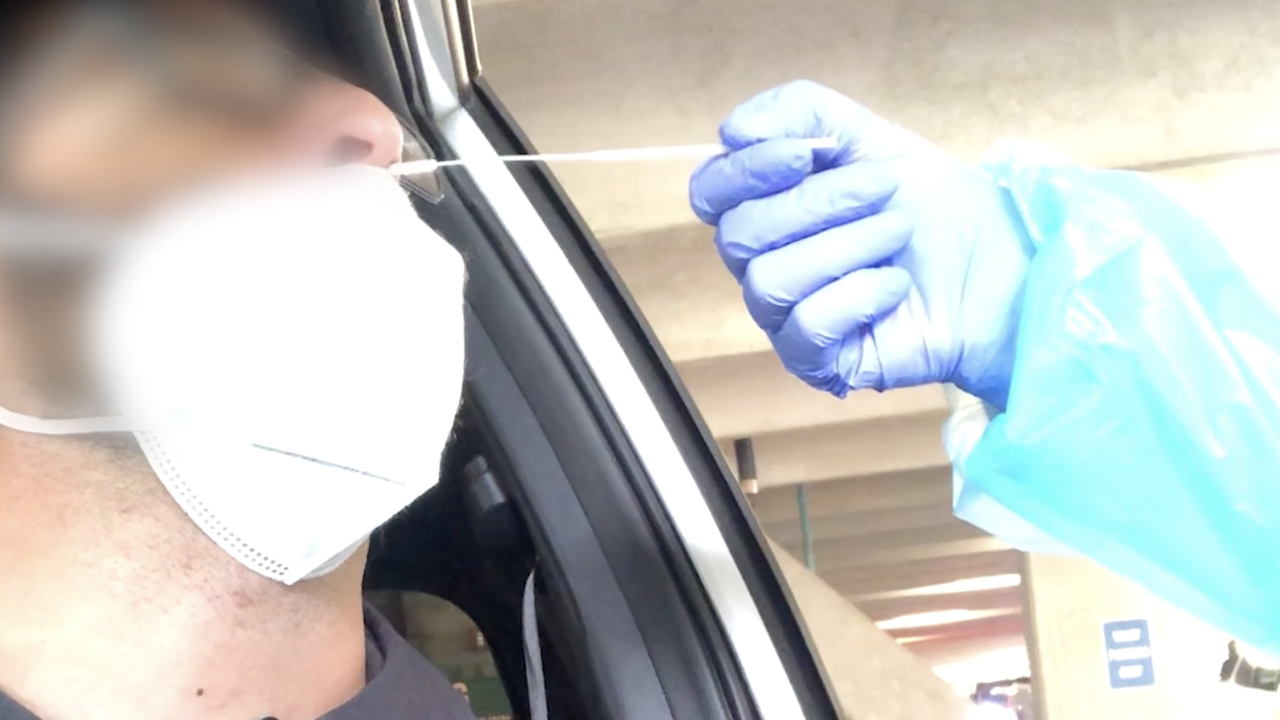COVINGTON, Ky. — Michael Tudor is fully vaccinated against COVID-19 but routinely gets tested every two weeks. But as the delta variant surges across the region and the country, he's finding he has to wait in longer and longer lines to get swabbed.
"We've been trying to do it pretty regularly just to make sure we're not passive carriers," the Ludlow, Kentucky, resident said. "I'm glad people are getting tested."
The swell in demand for COVID-19 testing was prompted not just by the recent spike in cases but also the start of the school year and holiday and seasonal travel.
It's had Tony Remington, the CEO of Covington-based Gravity Diagnostics, and his team running ragged, sometimes testing as many as 1,000 patients a day.
"We're burned out," he said Friday. "We don't want to do testing anymore. We don't want to set up drive-thrus, but it's the culmination of things."
For much of the pandemic, Gravity has operated five free drive-thru testing sites — subsidized by state funds — across Kentucky and Indiana. Fifteen more sites are slated to pop up over the next two weeks.
One of Gravity's current sites, located on a surface parking lot near the now-decommissioned IRS building along Covington's Fourth Street corridor near the Clay Wade Bailey Bridge, lately has seen those drive-thru lines back up out onto the street.
"We're close to saying, 'Sorry, we can't set that up for you anymore,'" he said. "But we're not there yet."
Kiana Martinez, a mother of six, said she needs to get tested but is finding it difficult to get an appointment. She tried an area Walgreens, where she was told they didn't have any tests available.
Some stores have run out of take-home tests. CVS on Wednesday had to work with a new supplier to try to keep up with their national demand.
"We don't want to see one person who wants testing not get testing and a fast result," Remington said.
It's why he said his crews are working seven days a week, some pulling 18-hour shifts to make sure their clinics get rapid results for as many as they can.
This story was originally published by Larry Seward on Scripps station WCPO in Cincinnati.




